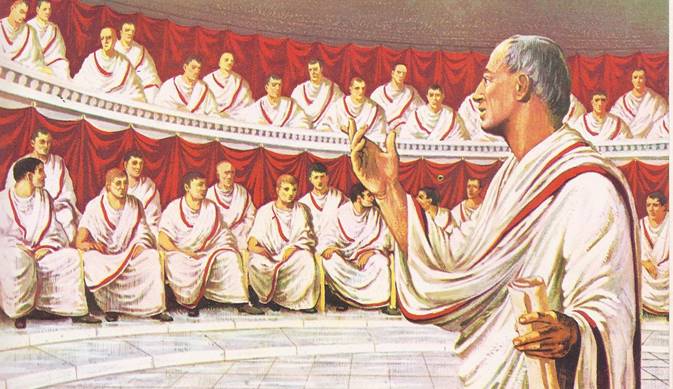Bells and trumpets sounded across Europe in the time that men would call the Middle Ages. Knights in glistening armour rode forth to serve God and their kings; life was like a stately procession winding through a landscape marked by castles and cathedrals. Each man knew his place. He was a prince, a knight, a squire, a priest, a craftsman, or a serf. He wore the clothes that belonged to his rank — the armour and family emblems of a nobleman, the robes of a churchman, or the rough wool jerkin of a serf. He lived according to an age-old …
Read More »Tag Archives: knights
The Warrior’s Take Over A. D. 1150 – 1336
BY THE middle of the twelfth century, Kyoto was no longer the real center of power in Japan. The old forms of government were kept unchanged. The emperor was still, supposedly, the source of all authority. The aristocrats wanted to enjoy the excitement of the Fujiwara court and they left their poorer relatives at home to manage their estates. The young men who were given this responsibility did not mind. Indeed, they welcomed it, for it was their only chance to get rich. So the Japanese aristocracy was divided between great nobles at the court and lesser nobles in the …
Read More »The City Divided 130 B. C. – 70 B. C.
MARCUS TULLIUS CICERO, a young statesman known for his dramatic speeches, stood before a panel of judges in a courtroom in Rome. He stared at them angrily. For fifty days he had travelled through Sicily, collecting facts about the crimes committed by Caius Verres, the man who was on trial. Now the judges had told him that there would not be time to listen to his evidence. Cicero knew that the judges had been bribed. For it was no ordinary criminal that he meant to send to prison or to death. Caius Verres was an aristocrat and a senator and …
Read More »Companions of the King 1500 B.C. – 1000 B.C.
Across the plains of Peloponnesus, flashed the swift chariots of knights and warrior-princes. They wore armour of gleaming bronze and bright proud plumes bobbed above their helmets. They were the new men of a new country and they called themselves the Achaeans. Their kings called themselves the Sons of Pelops, the mighty chief and hero who had given his name to the Peloponnesus. Pelops, the Achaeans said, was the son of a god. Probably, however, he was the grandson of an European invader, for many of the Achaeans’ ancestors were barbarian invaders from the north. But they may have seemed …
Read More »


